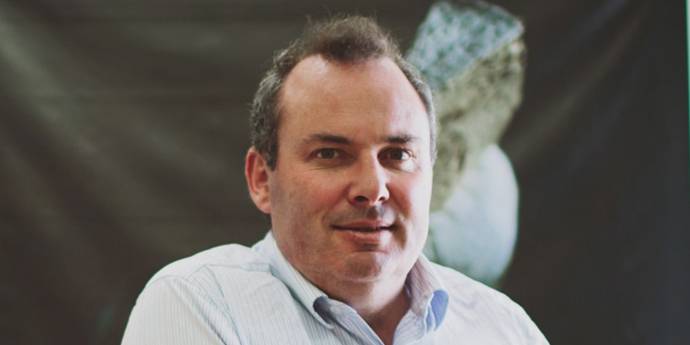Simon Berry: Bringing New Zealand’s favourite cheese company to the world

Simon Berry is the Managing Director of award-winning and internationally acclaimed cheese company Whitestone Cheese. A self-confessed skiing addict, Simon left a budding career as a finance analyst and accountant to help run his family’s Oamaru-based business. He has since overseen the company’s expansion internationally bringing ‘New Zealand’s Favourite Cheese Company’ (2018 NZ Champions of Cheese Awards) to the world and achieving business success.
We spoke to Simon, a member of the Institute of Directors, to talk about lessons he has learned in his governance journey and how he keeps himself on top of his game.
Tell us about a challenging governance experience you had and what did you learn from it
Governing through a product recall crisis with minimal brand damage. Managing it at the store level turned the crisis into a positive by supporting supermarkets to ensure they supported us. I learned that the skill required in a crisis is to be able to turn the situation into a positive.
What skills do you think will become even more important for directors considering the changing context of governance?
Change is constant. The skill to be able to read, adapt and most importantly benefit from the change is critical to successful governance. Keeping ahead of disruptions is key. A successful director must be well informed and always willing to learn about new trends, innovations, opportunities and threats.
How do you keep on top of your game?
I follow the news. I read current affairs as well as industry relevant trends. Current affairs alone keeps you informed of how people are feeling. Sustainability, for example, is such a hot topic throughout the world. Also listening to your team and not forgetting to harness the skills you have in front of you. So ask internally before seeking external help. It’s surprising what skills can be within immediate reach.
What is your governance philosophy?
Keep it real. Be visible and stay in touch with as many people in your organisation as possible. Be contactable and realistic in every approach. Don’t get tied up in the unnecessary detail. However, be sure you understand it. Have fun while doing it.
What are you passionate about outside your work?
Powder skiing and am totally addicted to it. I love skiing big mountain with fresh untracked snow. Also getting out on the boat in the summer with family and friends and enjoying sun, beach, bbq and boating activities. Living the New Zealand dream at the crib.
Simon powder skiing which is skiing on naturally fallen snow that has not been prepared or compressed.
What do you enjoy most about being a member of IoD?
The interaction with fellow directors. The ‘we are all in this together’ mentality that shines through, enables sharing and caring among fellow directors. We all want each other to succeed. With the help of the IOD network this can be achieved.
What advice would you give to those who are just starting in their governance journey?
Start at the community level to gain an understanding of governance roles. Do IoD’s Company Director Course to establish the required skill set. Work in an industry you enjoy and have an interest in. You can then always relate to the product or service you are providing. Form a team of people you can trust and enjoy being around.
How did you find IoD’s Company Directors’ Course and what did you get out of it?
It was the most memorable training experience I have had and a highlight in my professional development training. I met an enthusiastic and talented group of business leaders who both inspired and humbled me. We are all striving to achieve success on multiple levels, adapting the professional disciplines required to achieve this in a practical way. I learned that it is critical to understand your purpose — the reason you are doing what you are doing.
The course gave me a new level of understanding of governance and the role and responsibilities associated with sitting on a board. Learning how to identify and understand risk management with confidence is just one of the key skills I gained. Also, skills associated with law, strategy, finance and culture. Putting these skills straight into practice in my first board meeting after the course, I entered with a new focus on strategic goals and my report was aligned accordingly.
What is something that you consider an absolute ‘no-no’ for directors?
Putting their own personal interests before the best interests of the company. It’s a terrible look that is so obvious to the trained director and when it shines through as a weak disguise it is appalling, particularly for not-for-profits or community groups. Do not be a bully and push your own way only. Diversity is the key to innovation, so harness all vantage points.
What was the last book (governance-related or otherwise) you read?
Small Giants by Bo Burlingham. It applies to the New Zealand SME culture and talks about what small to medium companies in New Zealand should be aspiring to achieve – high value, high service and a long-term orientated culture. Companies who choose to be great instead of big.